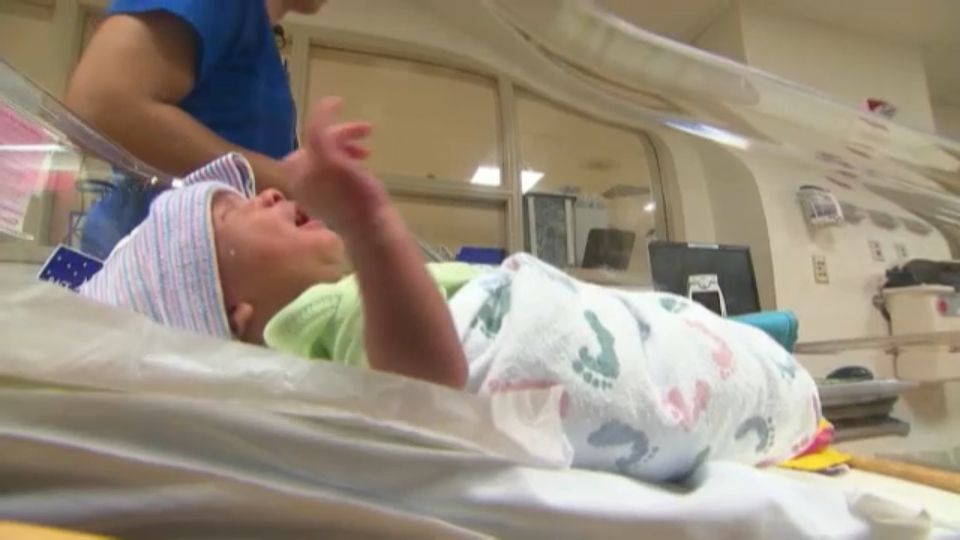Texans are having fewer babies. That’s bad for the economy.
[ad_1]
AUSTIN, Texas – Well-known US corporations are moving to Texas, where they have been attracted by the Lone Star State’s strong economy, business-friendly taxes, low housing costs, and thriving urban centers.
What you need to know
- Texas has a declining birth rate, which could have a negative impact on the future of the state’s labor market
- As in the rest of the country, many young Texas women are reluctant to have children
- Researchers say a legal immigration system could help fill the labor market gaps
There’s only one catch, according to a new report from the Federal Reserve Bank of Dallas.
Texans don’t have enough babies to fill all anticipated vacancies in the decades to come.
Texas’ birth rate is falling faster than the national average, worrying some experts about a future labor shortage that could threaten the state’s economic growth.
A report by the Federal Reserve Bank of Dallas shows that the US birth rate has fallen from 69 to 58 babies per 1,000 women aged 15 to 44 since 2007. That’s a decrease of almost 16%.
But Texas birth rates have declined faster than the national average, falling 21% from 79 to 62 births over the same period, according to the report.
The total fertility rate, or the number of children a woman will have in her lifetime, for women in Texas is 1.8 children, compared to the US average of 1.7 children, according to the report. But both state and national rates were below the replacement rate, or the number of children required to sustain the population without migration, which is 2.1, the bank’s researchers found.
“We’re going to have fewer workers, we’re going to have fewer taxpayers to support the social security programs that exist for retirees in particular,” said Collins of the Bush Center. “It also means that we must really be concerned about the productivity of the state’s economy in the future.”
Hispanics are the fastest growing population in Texas, making up 39.3% of the state’s 29 million residents. But Hispanic women also have fewer babies.
Hispanic women make up 42 percent of women of childbearing age in Texas, but they have had 31 percent fewer babies since 2007.
Most dramatic is the decline in the birth rate among young women. From 2007 to 2019, the teen birth rate in Texas decreased 61%, while the birth rate among women in their twenties decreased 27%.
Medical advances are also helping women choose to have children decades later than earlier generations.
“It’s not just a problem in the US. You see that in a lot of different places, ”said Laura Collins, director of the Bush Institute’s SMU Economic Growth Initiative. “For many economies, the more developed they are, the fewer children are born each year.”
Jaclyn Basilone says there are a number of reasons she and her husband haven’t had children, including the life changes caused during the pandemic.
“There’s so much uncertainty right now, is it time to give birth?” Basilone, 33, said.
But Basilone is part of a trend that began years before the 2020 pandemic began.
Birth rates tend to decrease as women are better educated and have more access to birth control. Case in point: Basilone says her bachelor’s and master’s degrees helped her delay children.
“I think Millennials and Generation X are just being taught that we have so much to achieve, and I think we’re on a railroad track – almost an assembly line – where the value of education, getting and keeping the job and The fact that self-employment is so high “is important that the family takes a step back,” said Basilone.
“We now know that women can have babies much, much later in life and the baby will be absolutely fine. So I just think it’s okay to wait, ”said Basilone.
The researchers said that in addition to automating and outsourcing jobs, hiring more people to meet the labor demand is an important tool in solving the problem. That means supporting legal immigration to import needed labor, said Collins.
“One of the things that we think is very important at the Bush Institute is that we have a functioning legal immigration system that provides more legal opportunities for people of all skill levels,” she said. “Much of our immigration system is now aimed at people with just college degrees or higher, or people who only have family ties here, knowing that there are many vacancies, regardless of whether you have a bachelor’s degree or not.”
It’s really important to have a system with a wide range of ways for people to come through legal channels, Collins said.
Researchers like Collins say that not enough of it is happening in the US to benefit from economic growth in states like Texas.
Collins pointed to a massive decline in legal immigration in recent years as a factor that has contributed to the surge in migrants at the U.S. border with Mexico this year and in previous years.
“You see what you see at the border because there are so few legal channels for the vast majority of the world. If they knew that they had more legal options than just asylum, they would use these channels because they would be safer, faster and more productive. “
However, experts warn that even with more migration, it will not be enough to offset the decline in the birth rate.
[ad_2]
https://spectrumlocalnews.com/tx/south-texas-el-paso/news/2021/11/03/texans-are-having-fewer-babies–that-s-bad-for-a-strong-economy-

